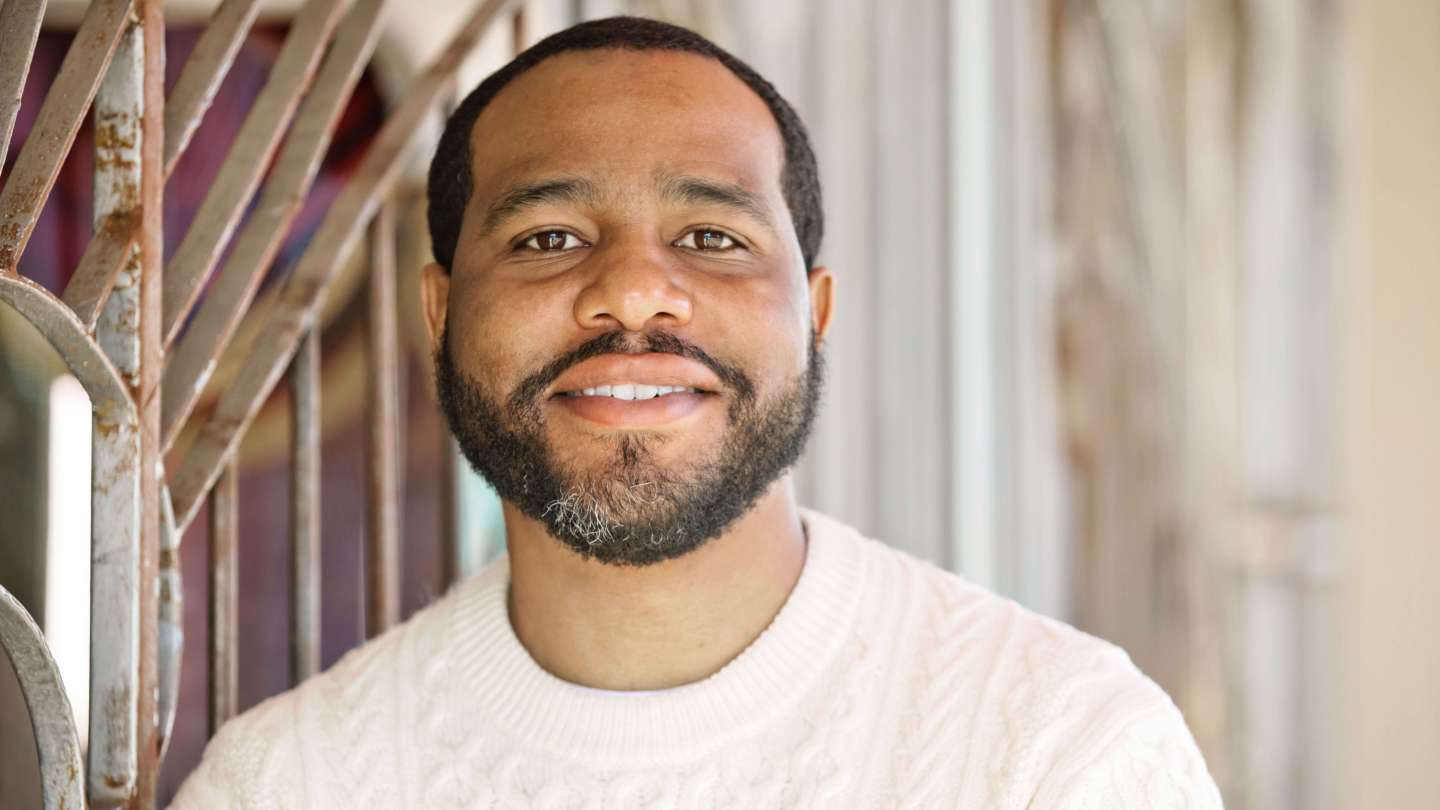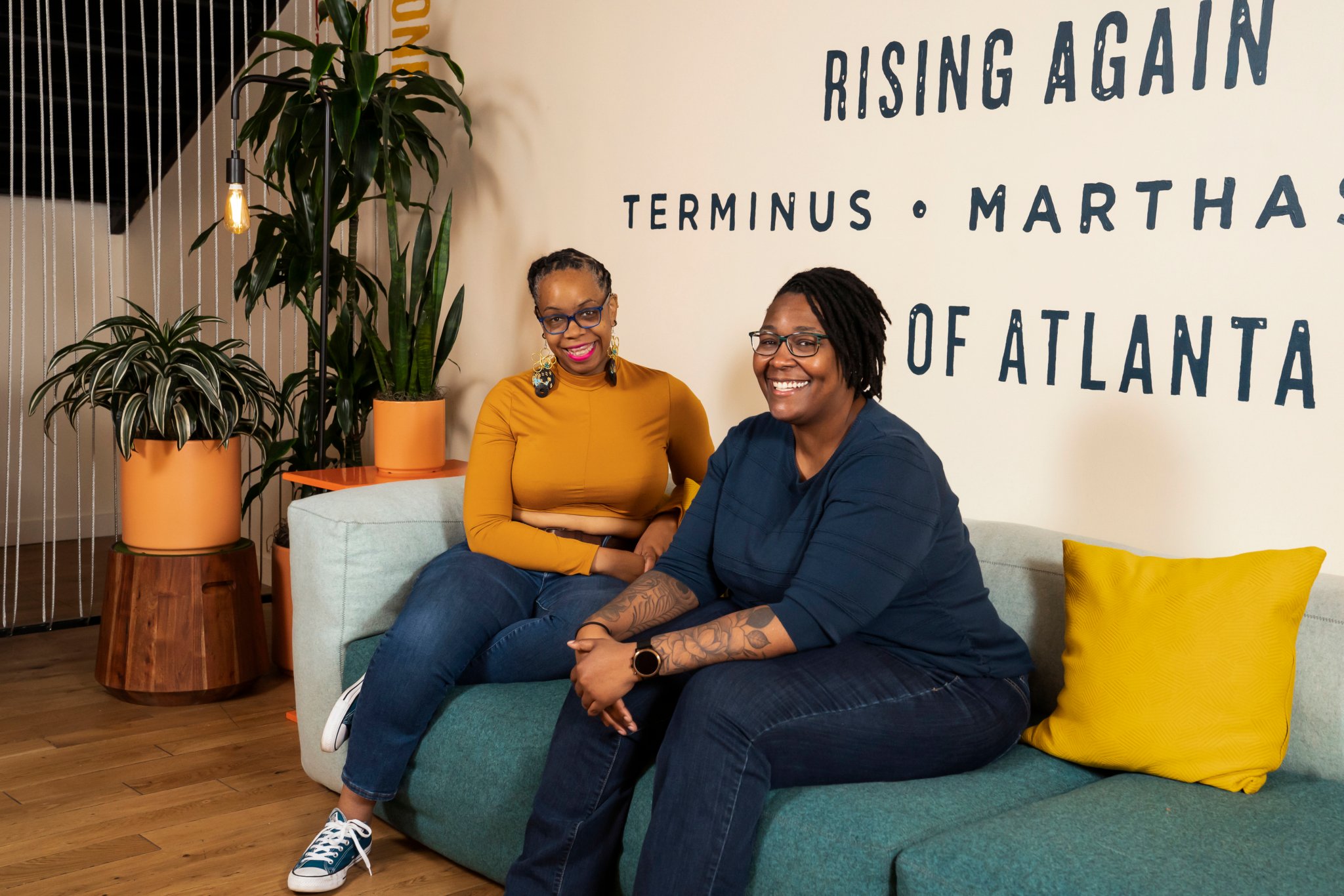Black business owners and workers too often face systemic biases: from underrepresentation in the boardroom to higher rates of unemployment. In Black-Owned and Proud, we profile innovative Black entrepreneurs building businesses and bringing much-needed change to the face of enterprise.
By and large, the lending industry is set up to work well for certain people. If you have a good credit score, consistent payment history, the right debt-to-income ratio, and a stable employment history, the lending gods will likely view your loan application favorably.
However, many people—especially people of color—tend not to check all of those boxes, and some can’t check any. So they’re often rejected by traditional lenders and become prey for predatory lenders, who employ what can at best be described as immoral practices, gouging payday loan borrowers fees that range from $10 to $30 per $100 borrowed. That equates to close to a 400 percent annual percentage rate (APR) on such loans, according to the Consumer Financial Protection Bureau (CFPB).
This inequity in lending is what led Travis Holoway (and co-founder Rodney Williams) to start SoLo Funds in May 2018. Holoway, who is also the company’s CEO, first noticed the wide disparity in how borrowers are treated when he was working as a financial adviser at Northwestern Mutual. “I discovered a major disconnect between the wealthy clients I met daily and the 78 percent of Americans who live paycheck to paycheck,” he says.
“I had friends and family who consistently asked me for small loans for basic necessities, such as gas, rent, and utility bills,” he says. “I realized that there were many pain points being experienced by individuals in the middle and low ends of the financial spectrum that were being ignored and desperately needed to be addressed.” That’s when Holoway realized that he had to be a part of the solution.
The problem of financial insecurity
Access to money is a huge problem for many Americans. A 2020 survey by the American Payroll Association found that nearly 69 percent of Americans would experience financial hardship if their paychecks were delayed by even a week. Another 2020 survey, this one by the National Endowment for Financial Education, which measures financial health during the pandemic, revealed that 46 percent of Americans list the ability to pay bills among their top financial stressor.
The Federal Reserve annually gauges the percentage of Americans who would not be able to cover an unexpected $400 expense like a car repair. That percentage rose from 62 percent in 2013 to 70 percent in 2016 to 75 percent in 2020.
Traditional lenders are not always serving these people. According to a survey by the Federal Deposit Insurance Corporation (FDIC), 5.4 percent of the U.S. population (representing 7.1 million people) are unbanked, meaning they don’t have a checking, savings, or money market account. Another 16 percent are underbanked, meaning they have a bank account, but they get loans from other sources.
Even people with “decent” credit who end up getting credit cards often find themselves on the losing end. Compared to a personal loan, a credit card usually has a higher interest rate, which also adjusts. In addition, annual fees, late fees, and over-the-limit fees can create a snowball effect with credit cards, preventing borrowers from ever paying them off.
Bridging the gap
SoLo, a completely mobile operation that focuses on small-dollar loans between $50 to $500, takes a different approach to lending. It connects borrowers who set their terms with individual lenders willing to accept them. “We empower people who need access to equitable capital with the ability to create their own loan terms,” Holoway says. What’s more, borrowers don’t have to go through a formal application process, and traditional credit scores are not counted against them.
The loan process is simple and easy to understand, with no hidden fees or hurdles. “A borrower states how much money they need, what they need it for, when they can repay it, and if they are willing to pay anything in addition to the loan principal amount,” Holoway says. The request is placed in an open marketplace where any individual lender can evaluate the borrower’s proposal and then fund the loan request.

SoLo is responsible for organizing the lending marketplace and vetting loan requests. But the system is set up so that lenders also have a lot of freedom to loan money on their own terms. For example, there are no minimum requirements, so they can lend however much they want to, and they can choose to lend money based on the payment date, the borrower’s history of paying the money back, and other factors.
Turnaround time is quick. Funds are transferred in real-time via a debit card so the borrower receives ready-to-use funds in their bank account in seconds, he says.
Giving borrowers control over the terms of the loan—including the ability to choose when to pay the money back is, in itself, a game changer. When people are in dire straits and need to borrow money, they’re usually forced to accept the lender’s terms. Sometimes, the borrowers already know they can’t meet the lender’s due date—which will inevitably lead to late fees, or having to borrow from one lender to pay another. SoLo provides not only an alternative but also peace of mind, because borrowers don’t have the added stress of a due date they can’t make.
Lenders earn money from optional tips that are offered by the borrower. In the section where borrowers set loan terms (loan amount, loan duration, repayment date, reason for borrowing, etc.), there’s also a place to include a “lender tip.” “Our lenders are everyday people—there is no institutional capital or lenders on our platform,” Holoway says. Lenders may decide to fund a loan based on the reason a borrower needs the money, their risk score, and/or the potential return from the tip. So the lenders are aware of the potential return prior to funding the loan request. “When a borrower repays their loan, the lender experiences the financial return,” he adds.
SoLo enables financial collaboration, which creates an opportunity for the average person to do well while doing good.
Travis Holoway, SoLo Funds co-founder and CEO.
So how does SoLo make money? From a 100 percent optional donation (different from the lender tip) that the borrower may offer at loan origination, as well as a feature called ‘SoLo Lender Protection,’ which functions like insurance, Holoway says. Lender protection is an optional feature designed to protect loans from inherent default risk. “There are zero imposed fees on the platform and no finance charges assessed to any borrowers,” he says.
One surprising thing that Holoway has discovered? “Ninety-five percent of SoLo’s members live in underserved communities—both lenders and borrowers,” he says. “We’re proving the power of financial collaboration.”
The opportunity to help others while also earning money has proven to be beneficial to both parties and has a positive social impact, Holoway says. The ability to earn returns on the dollars they lend is an added benefit. “SoLo enables financial collaboration, which creates an opportunity for the average person to do well while doing good,” he says.
Holoway believes that this type of peer-to-peer lending is beneficial to Black communities, which have historically been plagued by a lack of traditional banks and abundant high-cost check cashing stores and payday and title lenders. With such exorbitant fees and interest rates, he says the cycle of borrowing and debt is almost impossible to overcome—until now.
“SoLo leverages peer-to-peer lending to create a level of optionality and affordability that has never been seen before,” he says.
Room to grow
Given his company’s innovative approach to lending, it’s not surprising to learn that Holoway and his co-founder eschew traditional work environments. That’s what led them to WeWork, where the company operates out of WeWork Gas Company Tower in Los Angeles.
“WeWork provides our team with flexibility, which is incredibly important for an early-stage company,” he says. “In a remote environment, and with a leadership team that travels, the ability to be in a different city and still have convenient offices is invaluable.”
In August 2020, the company received a WeWork Black-owned business grant that has allowed the business to maintain its marketing spend and retain key talent, Holoway says.
The business secured a $10 million Series A round of funding earlier this year and has grown exponentially in the past year. Revenue over the past year has risen over 2,000 percent, Holoway says. That growth is testament to the power of a community working together, he adds. It’s also a potential blueprint for the future of the lending industry.
Terri Williams is a freelance journalist with bylines at The Economist, American Bar Association Journal, Time, USA Today, Yahoo, Realtor.com, Investopedia, and several other companies you’ve probably heard of.
Rethinking your workspace?










